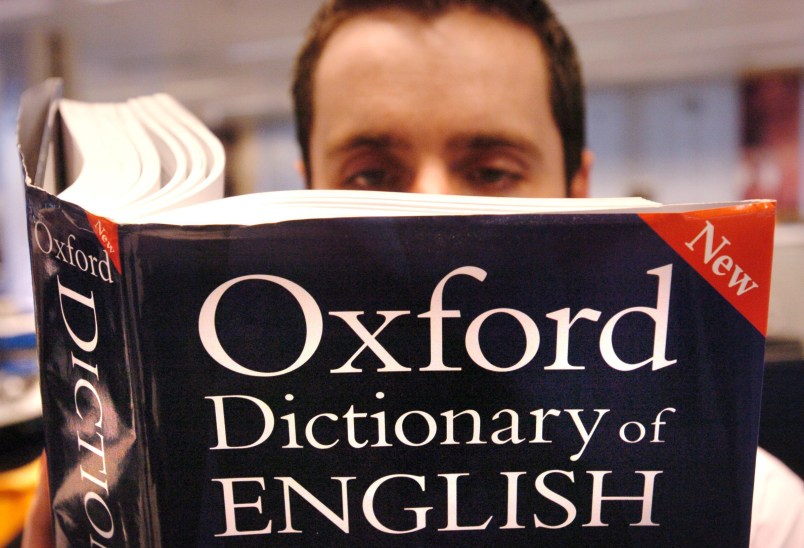LONDON (AP) — Oxford dictionary editors have chosen their word of the year: “post-truth,” a term sometimes used to describe the current political climate.
Oxford Dictionaries said Wednesday that use of the term rose 2,000 percent between 2015 and 2016, often in discussions of Britain’s decision to leave the European Union and the campaign of U.S. President-elect Donald Trump.
It’s often used in the phrase “post-truth politics” and is defined as belonging to a time in which truth has become irrelevant.
Each year, Oxford University Press tracks how the English language is changing and chooses a word that reflects the mood of the year.
Runners-up for 2016 include “Brexiteer,” an advocate of the U.K. leaving the EU; the extreme conservative movement known as the “alt-right”; and “hygge,” the Danish concept of domestic coziness.
Copyright 2016 The Associated Press. All rights reserved. This material may not be published, broadcast, rewritten or redistributed.







I wish it was ‘Post-Trump’…
America is gettin’ hygge with post-truth alt-right Brexiteerism.
Brave New World.
Was “truthiness” (a la Colbert) The Word just a few years ago? Though perhaps that wasn’t the Oxford venue.
Stunning perspective on the events that presaged the rise of the Post-Truth Era we are living in.
Some excerpts:
Such as Hillary Clinton.
So much of this article has a ring of… ahem, truth to it. From recalling the denunciation of stereotyping by 1960’s hippies, who now lead in the development of stereotypes — see: Baby Boom, Gen X, Gen Y, Millennials — to the certainty of the 80’s that “perception is reality,” we have indeed built a culture, an industry, and now with Trump and the conservative movement, a government unmoored from facts and reality.